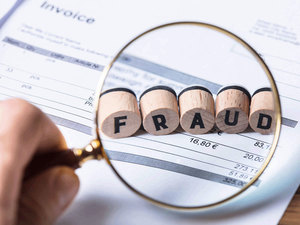Thanks to technology, it is not mandatory for you to queue at the bank to make a transaction. However, there are some risks involved in making a choice, and while online banking is almost always a safe and secure solution, mistakes can always occur. Now, UPI, net banking, mobile wallet have reduced the difficulties related to banking transactions to a great extent. In this way, you do not need to go to the bank to transfer money to someone’s account as this can be done in a fraction of seconds through smartphones or laptops.
So, you want to instantly transfer funds to a bank account immediately, and you have entered all the required credentials on the digital gateway page and verified as well. But what if you enter the wrong details, for example, the wrong recipient’s account number? With the exception of certain systems like UPI, other modes of remittance require you to manually enter the recipient details.
Here is what you can do if you have initiated a money transfer to the wrong bank account:
Initiate process of canceling a transaction:
Many new technologies have been adopted to make banking facilities easier. But with this comes some difficulties. For example, what would you do if you accidentally transferred money to someone else’s account? How will you get that money back? You must have made this mistake at some point in time. If you accidentally transferred your money to another account, you can get it back.
· Immediately contact your bank and the manager of your local bank to let them know the details of the wrong transaction you started, the account, and the intended account of the recipient.
· The bank will guide you as a facilitator and provide you with the details of the bank’s branch where the money came in. You can ask the bank to cancel the transaction. If the amount is paid by the same bank to the wrong recipient, the bank can also approach the individual and ask for permission to attempt to cancel the transaction.
· It is wise and recommended to keep a personal record of all communications with the bank regarding the transaction. Be prepared to take a legitimate route in case the wrong recipient refuses to return the money that was mistakenly sent by you.
How to prevent wrong transactions:
· As a sender, you are responsible for entering the correct details on your bank’s website, such as your IFSC code and bank account number. It is highly recommended that you always check twice or three times after entering the details and before executing the transaction.
· If possible, it is a good idea to send a small amount first so that it’s sent to the intended recipient before making a large transaction. It’s much easier to get 10 rupees from a bank than thousands or thousands of rupees.
· Save contact details for your local bank branch for easy access. Therefore, if a mistake occurs, the bank can notify the recipient as soon as possible and it is always helpful to receive the money in the sender’s account.
If transferred to your own bank’s branch
If the bank account to which you have transferred the money does not exist, then the money will automatically be refunded. But if not so, then you have to approach your bank to tell the manager about the wrong transaction. Here, the bank will check the details of the beneficiary and if the person holds an account with the same branch, the bank can request him to return the money.
If transferred to another bank account
If the money has been transferred to another bank account by mistake, then it may take more time to get the money back. Sometimes banks can take up to 2 months to settle such cases.
You can find out from your bank that in which branch of which city the money has been transferred to. You can also try to get your money back by talking to that branch. On the basis of your information, the bank will inform the bank of the person in whose account money has been transferred by mistake. The bank will ask that person for permission to return the wrongly transferred money.
What if the counterpart refuses to credit the amount back to your account
If the person in whose account money has been transferred by mistake refuses to return, then a case can also be filed against him in court.
However, in the event of a non-refund of money, this right is in the context of violation of Reserve Bank of India (RBI) rules. According to RBI rules, it’s the responsibility of the remitter to provide the correct beneficiary account number and other details while doing payment.
RBI instructions for banks
Nowadays, when you transfer money from a bank account to someone else’s account, you get a message. RBI has also instructed banks to take necessary steps in case the money gets deposited in someone else’s account by mistake. The bank is responsible for returning your money from the wrong account to the correct account.








